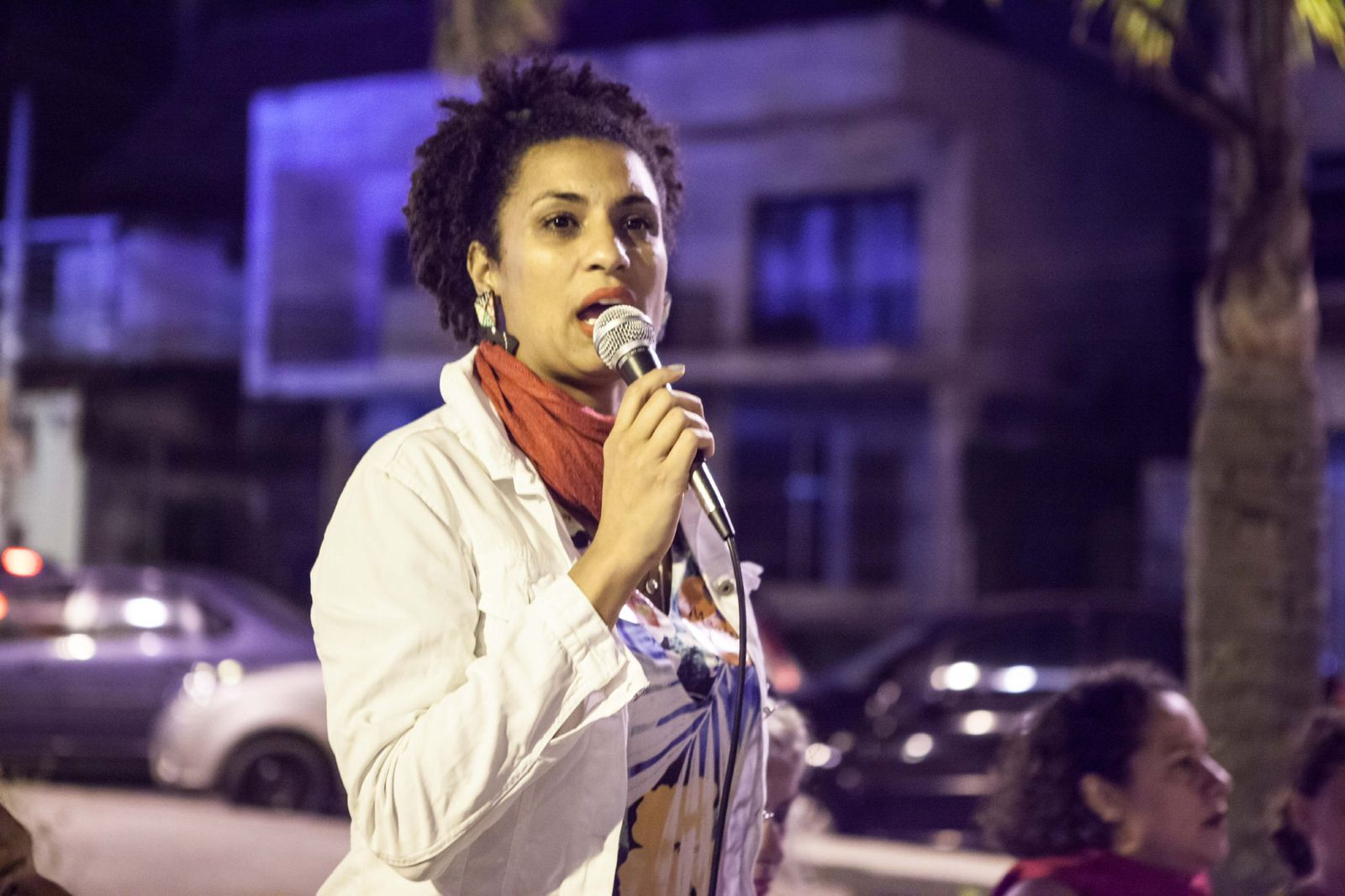
Her legacy can’t just be symbolic. The Brazilian State owes her relatives, Brazilian society, and the international community an answer to the question of who ordered the assassination of Marielle Franco and Anderson Gomes? On March 14, 2023, the brutal assassination reached 5 years with no answers and no justice for Marielle and Anderson. Furthermore, the City of Rio de Janeiro owes its citizens the implementation of the laws penned by Marielle and subsequently passed. Below, we introduce these laws that have been waiting 1,827 days for implementation.
Marielle Franco’s First Law: The Owl Space
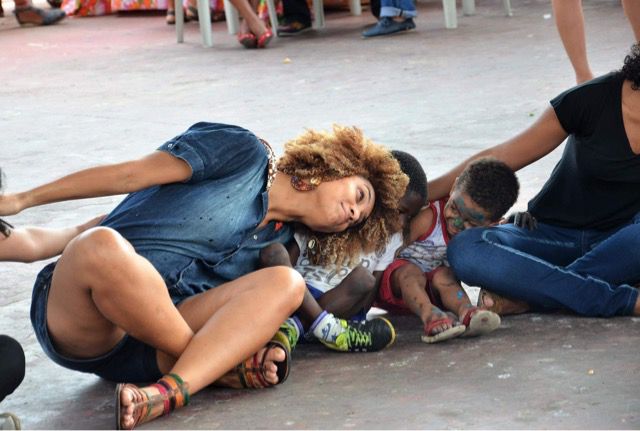
Authored by Marielle Franco, Law 6419/2018 established the Night Space Program for Early Childhood Care, also known as the Owl Space Law, which aims to meet the need of families for childcare whose mother or father works or studies at night. This law would benefit, above all, mothers who, overwhelmed by multiple jobs, sometimes give up better opportunities due to child care restrictions and the structural neglect of fathers in assuming their share in child care.
As outlined in the book Owl Space: For the rights of children and women. Legislator Marielle Franco, by Amanda Mendonça and Pâmella Passos, Marielle filed Bill 017/2017, creating the Night Space Program for Early Childhood Care, during the first few days of her first term in office in January 2017.
In a testimonial for the Owl Space book, Marielle’s sister, Minister of Racial Equality Anielle Franco, recalled the motivation behind her sister’s first bill. According to the Minister, it came from the experience of being a single mother from the favela and a young university student. Unlike many other women, Marielle had a support network formed by her parents and sister which enabled her to study and work as a young mother, become an activist and, later, a parliamentarian. Without this network, her trajectory would not have been possible or, at least, would have been much more difficult.
“Our mother got by asking one person or another [for help with child care]. Even though for the most part it was only during the day, her apprehension about leaving her daughters was well known. I grew up understanding this battle. A few years later, I was almost a teenager when Luyara [Marielle’s only daughter] was born. I saw that story repeating itself, but with my sister. Somehow, I felt that I should repay everything she did for me as a little girl and I decided that I would do the same with Lulu, my niece, and take care of her as if she were my own. I would pick her up from daycare and stay with her whenever my sister needed help. My sister studied at PUC [the Catholic University of Rio de Janeiro] at night and I’m glad she had us. What if she didn’t have this, as many others don’t?” — Minister Anielle Franco
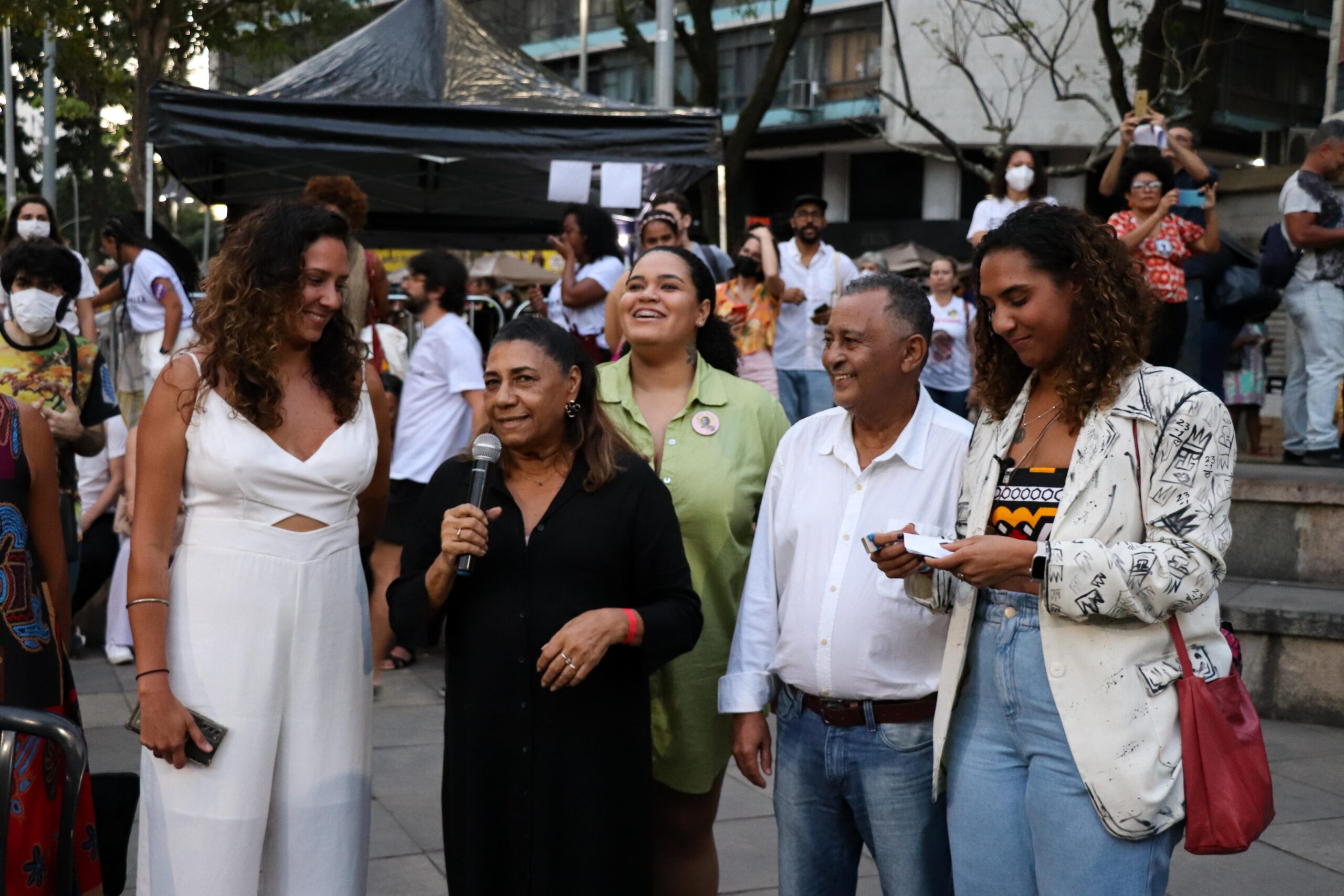
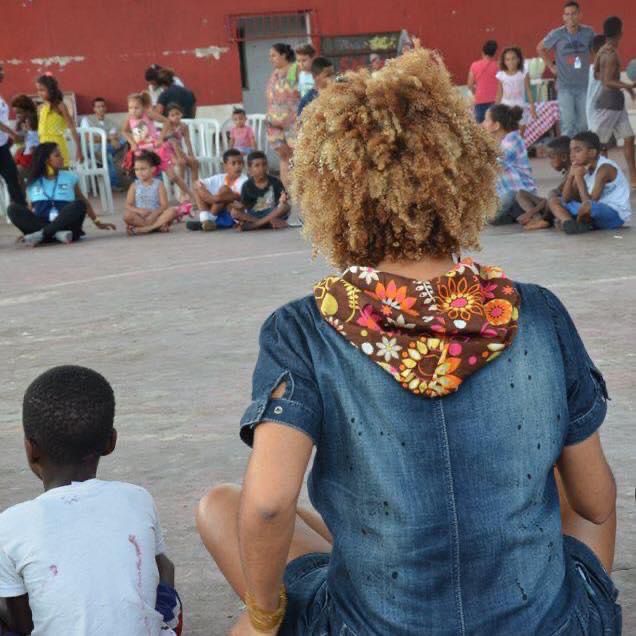
Friend and history professor at the Federal Institute of Rio de Janeiro (IFRJ), Pâmella Passos reinforces Anielle’s account that Marielle’s politics were about her experience: it was the politics of the lives of Black women and those from the favela.
“Mari arrived [in politics] with a great sense of responsibility. And it’s no wonder that the Owl Space Law was her first. Marielle, as a mother, as someone who studied with a daughter, knew that having someone to take care of the child and the woman was essential. She knew, in her own body, the real need for a children’s night space.” — Pâmella Passos
According to the historian, the book about the Owl Space Law was edited “to fit in the purse of those who need to read this story” on the way to work, because the Owl Space Law is the most important public policy of Marielle Franco’s legacy as a legislator.
“In the midst of the pandemic, we had the case of the little boy Miguel, for example, who died in the Northeast because his mother took him to work. We have numerous cases of children who are in a vulnerable situation due to the lack of an adequate nighttime children’s space. Mari was ahead of her time. She knew in the flesh… I think that all the effort to pass Marielle’s laws in 2018, after her murder, was very important and symbolic. However, it is not enough to be on paper! We have to implement the laws! That there’s not even one children’s night space in the city of Rio de Janeiro… is outrageous. It’s like a second death for Marielle. It is silencing what she was as a legislator and councilor.” — Pâmella Passos
The authors of the book about the Owl Space Law have been invited to talk about the bill in Canada and Scotland, as an example of how race, gender, and class must be behind the design of anti-racist, feminist, and class-oriented public policies. They have also written about the legacy of Marielle Franco’s public policies in Le Monde Diplomatique Brasil.
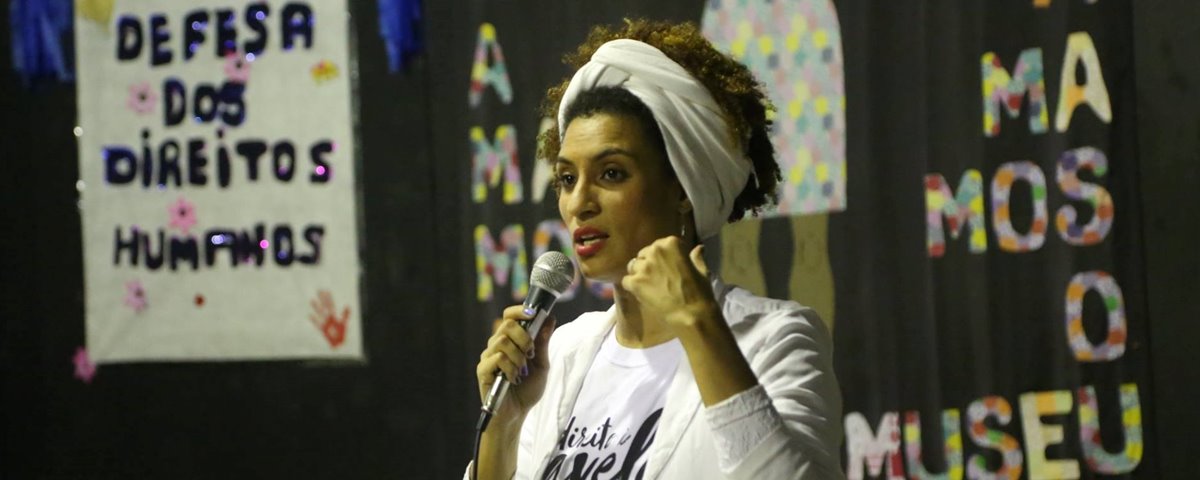
Even so, today, over four years after the law was passed by the Rio de Janeiro City Council on November 14, 2018, the Owl Space remains on the drawing board. The Municipal Education Secretariat replied in a statement: “The Law still depends on regulation and budgetary approval for the effective application of the program. Regarding Law nº 6614/19, it is an authorizing law, being in force, as well as the other seven laws authored by Councilor Marielle Franco [dealing with education].”
In January 2017, Marielle Franco began her term in the Rio City Council ready to go. According to the Marielle Franco Favelas Dictionary, in the one year and three months leading up to her death, the parliamentarian introduced 16 bills, of which five had her as the sole author. Marielle presided over the Commission for the Defense of Women—currently headed by her widow, Councilor Mônica Benício—and was appointed rapporteur for the Commission for Representation to represent the Rio City Council in Brasília to accompany the Federal Public Security Intervention which took place that year in the State of Rio.
In addition to The Owl Space Law, Marielle Franco’s Legislative Legacy is composed of several Common Law Bills, a Complementary Law Bill, and a Legislative Decree. Below are the main examples of Marielle’s policies focused on women, children and young people, on the Black population and favelas, on the functioning of the city and the favelas, on the rights to housing, memory, freedom, and life.
Laws Focusing on Women
There are at least three bills by Marielle Franco which represent examples of innovative legislative actions focused on women. The first is Bill 555/2017, called the Carioca Woman Dossier, which establishes the preparation of periodic statistics (annually at least) on women assisted by city government services. This bill creates a database on the efficiency of the City’s initiatives to be used by all government departments to design more efficient policies for women in Rio de Janeiro.
The second is Bill 103/2017, which includes Tereza de Benguela Day and Black Women’s Day in the official city calendar of Rio de Janeiro.
And the third is Bill 417/2017, which creates a permanent campaign to raise awareness and fight sexual harassment and violence in the city of Rio. The main aims of the campaign are to tackle sexual harassment and violence in facilities, public spaces, and public transport, disseminate information on sexual harassment and violence, provide telephone numbers of public agencies responsible for sheltering and supporting women, and encourage reporting of types of conduct. These objectives would be achieved through the creation of booklets with explanations about sexual harassment and violence, ongoing training of employees and service providers on sexual harassment and violence, empowering women to report what happened, and disseminating public policies aimed at supporting victims of harassment and sexual violence.

Laws Focusing on Black and Favela Youth
Focused on Black youth, legislation authored by Marielle Franco approved by the City Council includes Bill 288/2017, which includes the Municipal Day for the Fight Against Incarceration of Black Youth in the city’s calendar, and Bill 515/2017, which founds the Program for the Effectiveness of Socio-Educational Measures in an Open Environment in the city of Rio. The latter aims to introduce socio-educational redemptive measures within a non-incarcerated environment, reducing the incarceration of young people, especially Black youth. This Bill aims to keep child and adolescent offenders living with their families, maintaining links with their schools and communities, even in the midst of serving their sentences. According to this legislation, socio-educational measures as sentences for children and adolescents should have a community and professionalizing nature, and aim at the inclusion of adolescents (up to 21 years old) in the labor market.
Thinking from the favelas’ perspective, Marielle proposed a public policy with the potential to avoid hundreds of deaths per year in landslides, barrier collapses, and home collapses in favelas. Bill 642/2017 establishes public and free technical assistance for project design, construction, renovation, expansion, and land tenure regularization of social housing for families with incomes of up to three minimum wages. The main aims of this bill are to optimize the use of space, formalize and regularize buildings, support renovations or expansion of housing by the city government, prevent the occupation of areas of risk and of environmental interest and promote the balance of areas built close to environmental preservation areas, and to enable and qualify the occupation of urban sites in accordance with urban and environmental legislation.
Similar to the POUSOs which—despite being few and limited—were very popular in the early 2000s, there would be a public agency in the city government responsible for offering technical advice to favela residents on the structural conditions of already consolidated areas and for the planning and construction of new properties for the working classes. The law proposed by Marielle envisioned self-managed housing projects and those built through collective action being prioritized for support.
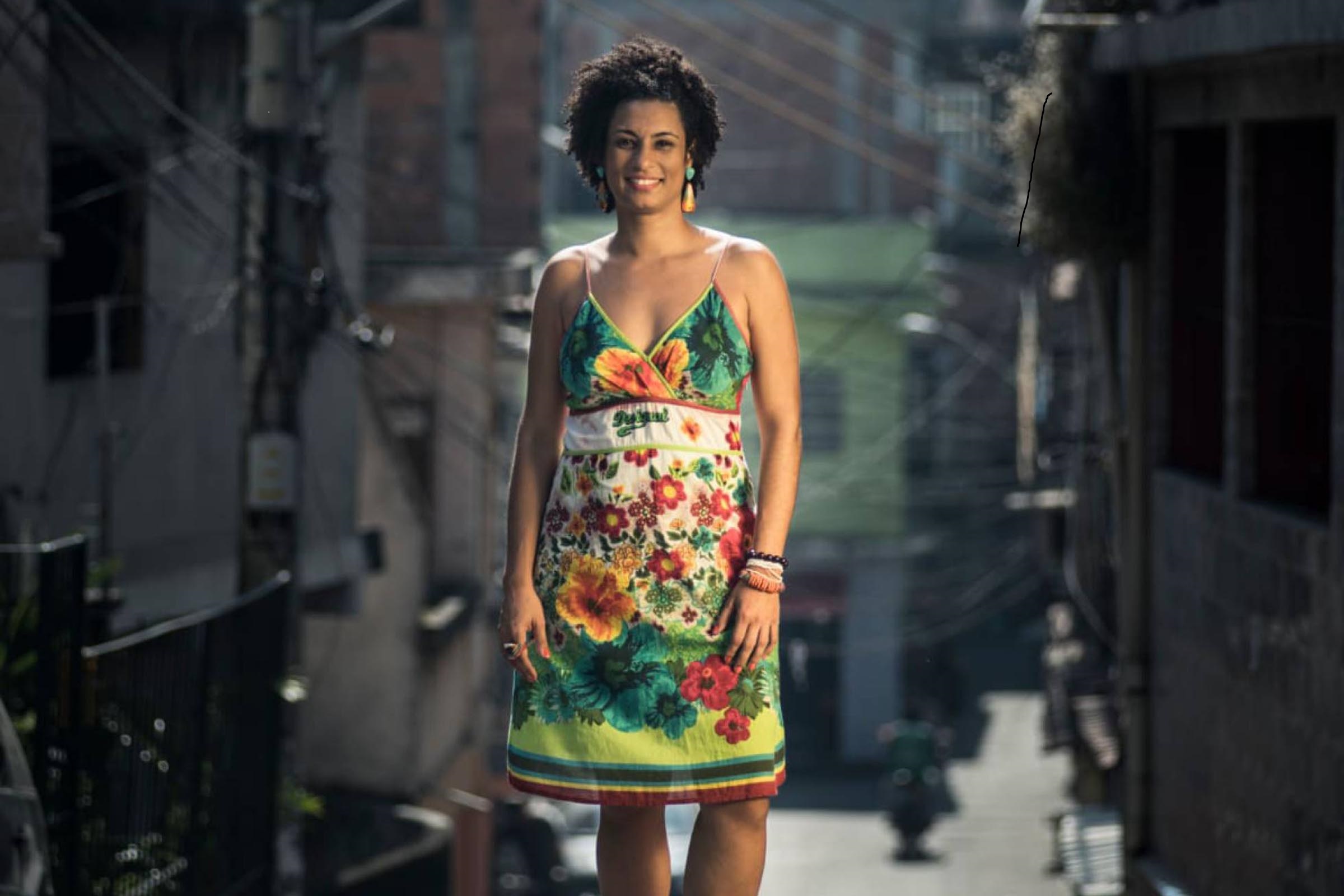
Laws Focusing on Health and Transport
Marielle Franco didn’t just legislate in favor of women, young people, Black people, and favela residents. The parliamentarian was also dedicated to approving laws dealing with matters related to public services provided to the whole population of Rio de Janeiro. Bill 437/2017 was developed together with other councilors from various political parties and aimed to restrict the purpose of management contracts signed between the City of Rio and Social Organizations (SO) in the health sector. The action taken by Marielle and other councilors against SOs took place at a time when public health services in the city of Rio de Janeiro were in the process of being outsourced to private companies through the Social Organizations’ system and public servants systematically devalued.
There were also changes that Marielle and five other councilors approved in the Municipal Tax Code—Law 691/1984—aimed at reducing taxes concerning public transport which consequently affect the poorest population.
Complementary Law 181/2017 was responsible for regularizing motorcycle passenger services, known as moto-taxis, and which have a big impact on the routine, job market, and economy of the favelas. The law recognized that this is an important service that has been provided for decades in the favelas of Rio, and established rules to protect the lives of motorcycle taxi drivers and passengers, providing the conditions for the creation of new moto-taxi points throughout the city, recognizing the need to expand this model.
Law Focusing on Public Administration
Some parliamentary initiatives co-authored by Marielle Franco attest to her political action focusing on public administration, the city’s budget, and the well-being of public workers. An example was Bill 493/2017 which sought to address the constant delays in public worker salary payments and establishes the priority of paying active and inactive public workers and pensioners over the payment of the monthly subsidy to the mayor, secretaries and undersecretaries in Rio de Janeiro’s city government.
Approved, But Where’s the Implementation?
Marielle Franco also edited the Legislative Decree Draft 32/2017, which awarded the title of Honorary Citizen of the City of Rio de Janeiro to activist Elza Santiago from the Articulation of Brazilian Women, a popular educator in the solidarity economy. Unfortunately, the parliamentarian only had the opportunity to use this legislative instrument once.
It is worth repeating that all these and other legislative projects by Marielle Franco—16 in total—were proposed during a term that lasted only 15 months, interrupted by Marielle’s political femicide before the middle of her term. Marielle was a councilor who worked efficiently, was very dedicated and representative, and had tremendous political potential. Among the legislative initiatives she helped build, Marielle was the sole author of five of them: the Carioca Woman Dossier, the inclusion of Tereza de Benguela and Black Women’s Day on the city’s calendar, public and free technical assistance, Permanent Awareness and Confrontation Campaign to Harassment and Sexual Violence, and the Legislative Decree in honor of Elza Santiago. Therefore, Marielle is the sole author of five legislative projects approved by the City Council: one third of the approved projects she was engaged with. A rapid parliamentary trajectory, interrupted by five shots to the head.
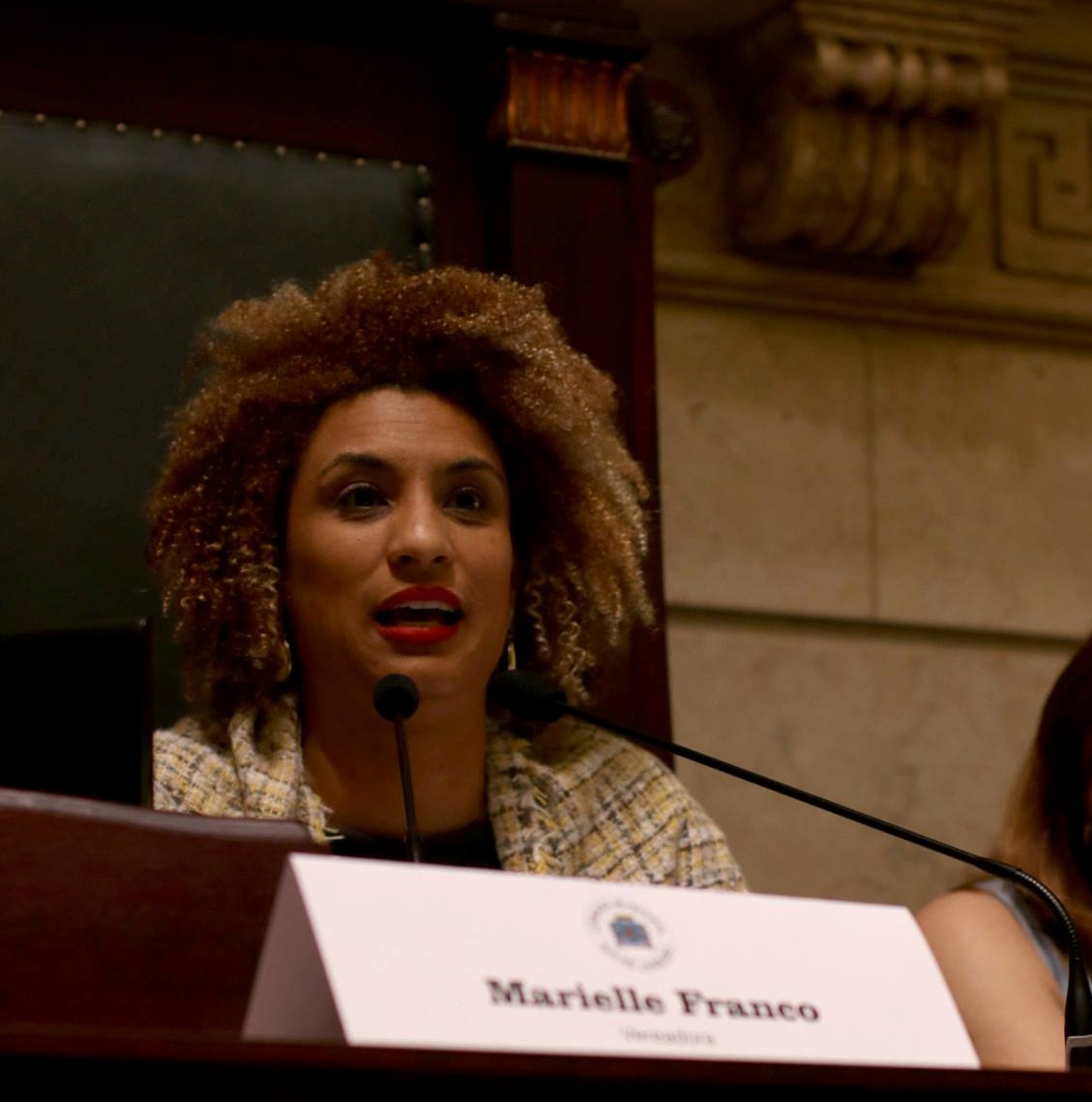
And yet, even with her martyrdom and all the history of work and projects’ approval, the mayoral administrations of Marcelo Crivella and current Mayor Eduardo Paes continue to not provide the budget or physical and institutional structure to implement these laws. Therefore, although approved, unfortunately these laws are not yet generating concrete results for the population. City Hall and City Council have failed to ensure Marielle Franco’s legislative legacy results in concrete public policies for 1,827 days at the time of writing.
Mônica Benício was elected city councilor in 2020, after her wife’s assassination, and demands the execution of her partner’s bills. It is very important to her that Marielle’s ideas finally become public policy that improves people’s lives.
“It is clear that the bills’ approval as a symbolic political act was and is very important for obvious reasons. But these are democratically approved bills! So, where is the implementation of these projects?”— Mônica Benício
For Benício, Marielle Franco’s greatest legacy is the collective and grassroots struggle that the councilor managed to engage. As a parlamentarian, she produced policies for the daily life of Black and poor people in a white, conservative, and elite environment, such as Rio’s City Council.
“We have a very sexist, racist, and misogynistic environment in the Council. So, doing politics within the [legislative] house being a Black woman, was not easy—a woman who carried and who pushed for the favela agenda, for the LGBT agenda, for the anti-racist struggle, for all the issues she embodied in her history, in her own body. Marielle faced many challenges inside that house.” — Mônica Benício
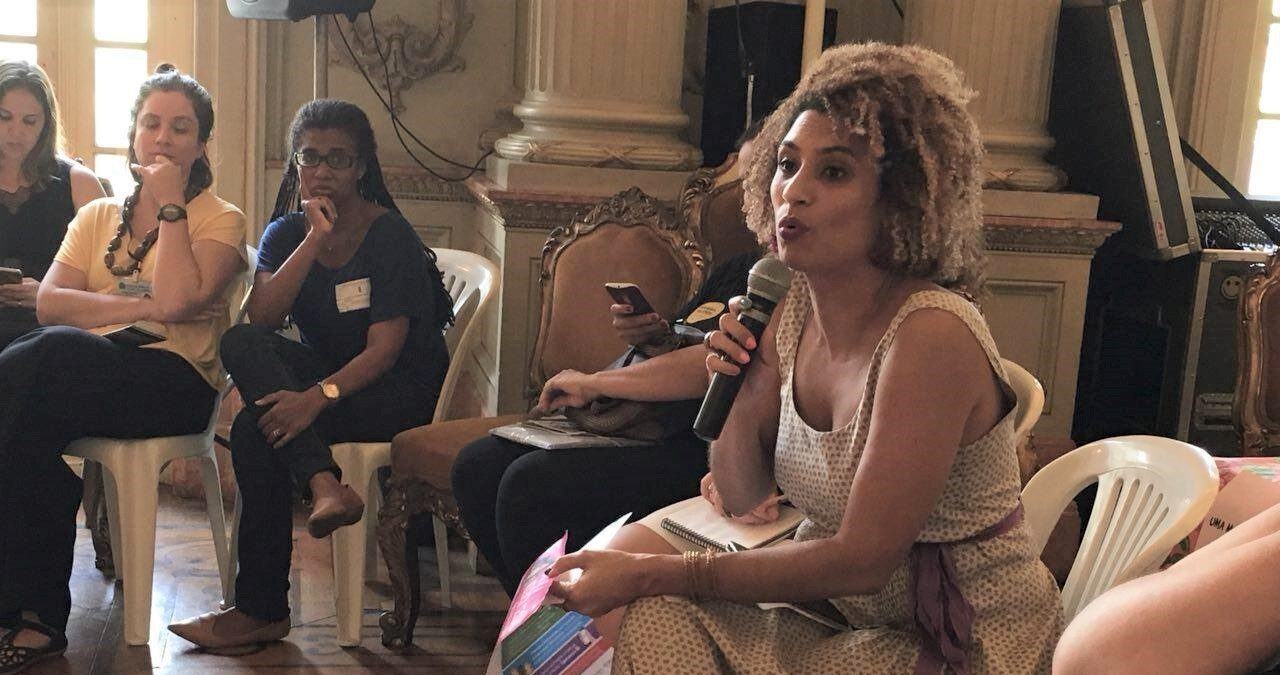
Mônica Benício concluded:
“Of all the powers Mari had, the greatest was to expand and go beyond the borders of the Legislative and Executive. It was the peoples’ power, the street’s power. The power of the masses is built by preserving and fighting for her memory, which speaks about the symbolism of her projects, about the essence of the anti-racist, feminist, and socialist struggle. I think that this fighting spirit, taken collectively, is Marielle’s greatest legacy.
When Marielle was assassinated, Mari’s projects that had not been voted on or that had even been shelved went back to the plenary to be voted on and were largely approved. Except for two of them that the City Council did not even put up for debate. That is the project that talked about the issue of legal abortion and the other project that addressed the LGBT agenda. All others went to vote and were approved. Now, where’s the implementation?
Then, Marielles will be able to bloom and not be murdered. Then, we will actually get justice for Marielle. But, I think that all of this dialogues with her parliamentary work, which is a reflection of her essence as a defender of human rights.” — Mônica Benício
The Greatest Legacy Is the Grassroots Struggle

When Marielle became a Rio de Janeiro councilor in 2017, she was the only female parliamentarian from the Socialism and Liberty Party (PSOL) in the City Council. Now, the party bench has four women: Monica Cunha and Thaís Ferreira, both Black, and Luciana Boiteux and Mônica Benício, both white.
For the four PSOL councilors making up the current legislature, it is fundamental to study ways to implement and execute the public policies left by Marielle Franco. According to the parliamentarians, these bills speak of the potential of Marielle and the favela where she came from, Complexo da Maré.
“We are studying the Owl Space in depth to see how to implement and demand its execution. Because Mari’s public policies reflect her skin, her face, her feet. She is a Black woman worker from the favelas of Rio de Janeiro. Everything she represented. She was the only women on the PSOL bench. She represented a lot of people. Her legacy is effectively this: the expansion of women’s participation in politics. Therefore, we will not accept political violence as her legacy. Every time I speak now here in the City Council chamber, which now has her name, I remember that this platform belongs to Mari. And always will.” — Luciana Boiteaux
Councilor Monica Cunha, mother of a victim of State violence, says that Marielle Franco is a legacy, a reference, and a fight. She defends, like her colleagues in parliament, the implementation of Marielle’s laws. For Monica, this would be an achievement for all Black women in Rio.
“I understood what human rights really were with Marielle Franco. We speak from the same place of the peripheral Black woman. Among all of Mari’s bills, the Owl Space is extremely important, because it was for working Black women. We have to fight for it to be implemented. We cannot remain only in symbolism. We will fight for her and for every Black woman in this city.” — Monica Cunha
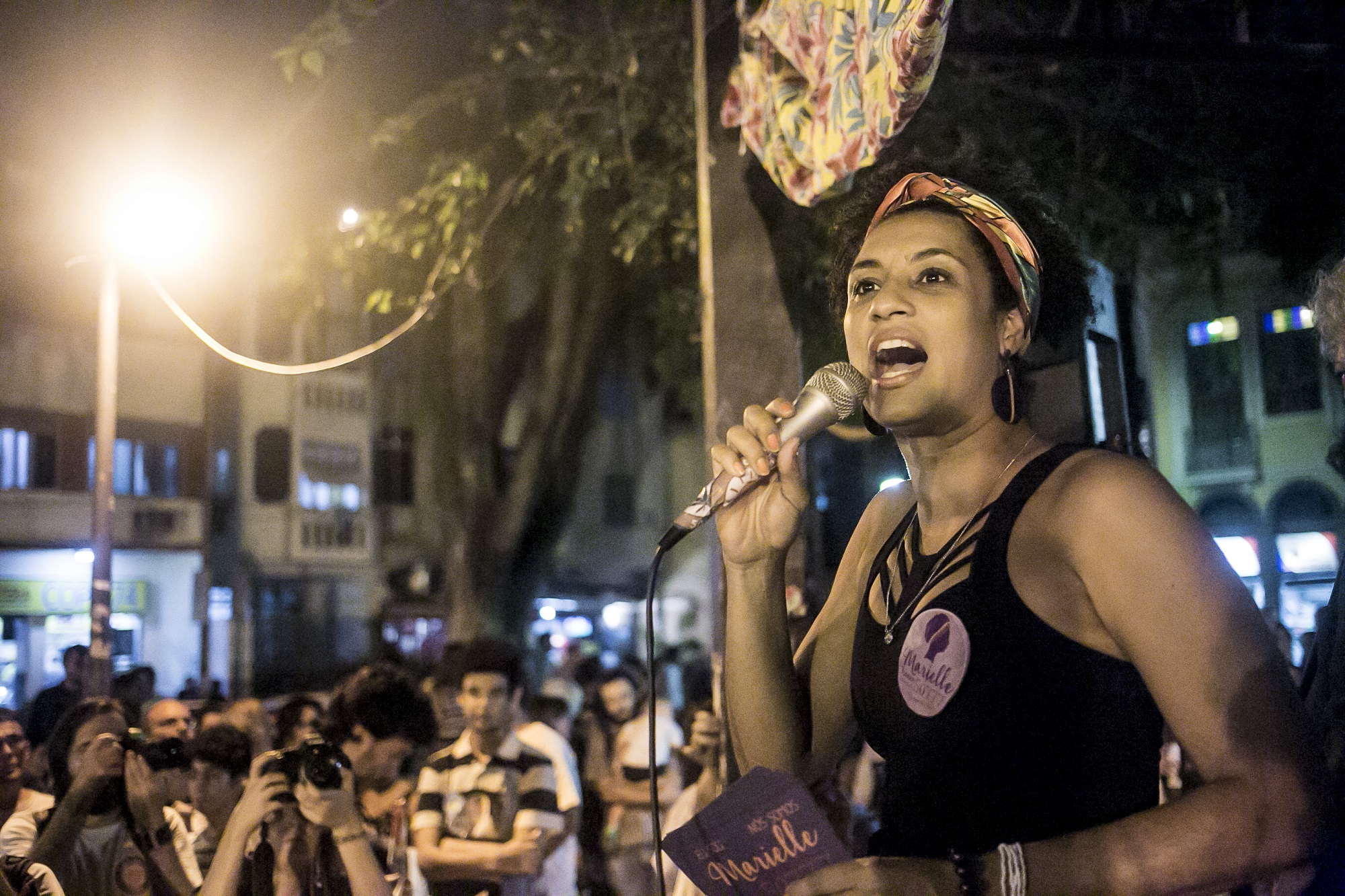
About the author: Tatiana Lima is a journalist and popular communicator at heart. A Black feminist, member of Complexo do Alemão’s Researchers in Movement Study Group, she is currently special reporter with RioOnWatch. A fair-skinned Black woman, born and raised in a favela, Lima currently lives in Rio’s periphery and is a doctoral student at the Fluminense Federal University (UFF).
